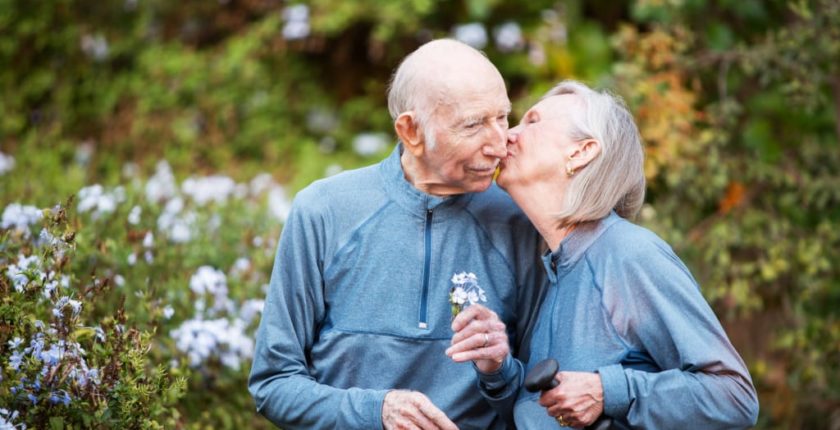Consultant raises the lid on sexuality and intimacy in the care home
[ad_1]
Dementia consultant Esther Wiskerke has made it her mission to raise awareness and tackle the taboos around managing people’s sexuality in a dementia care setting. CHP joined a Hallmark Care Homes’ training presentation led by Esther at Chamberlain Court in Tunbridge Wells.
There’s a momentum building to raise awareness on what a complex issue managing people’s sexuality in a care setting is,” Esther said.
“Sexuality is something that is considered only for young people by the general public.
Story continues below
Advertisement
“There’s a negative image of elderly people having sex and the assumption that older people have no interest in it.”
Esther, who has researched the area as part of her dissertation on Advanced Dementia at the Institute of Psychiatry and Neuroscience at King’s College, told her audience of lifestyle leaders and carers that encouraging sexuality and intimacy can have cognitive benefits for the elderly.
The consultant also highlighted the scarcity of research into the issue and need for more guidance; a sentiment echoed by those attending, one of whom commented: “I struggle to know where the line is in fulfilling my duty of care and I feel we need more proper guidance on how to best manage relationships.”
Esther pointed to recent guidance offered by the CQCi and the Royal College of Nursingii as evidence that the issue was being given increasing attention by regulators and professional bodies.
She observed that other guidance given in the Mental Capacity Act 2005, Sexual Offences Act 2003, Human Rights Act 1998, European Convention on Human Rights and World Health Organisation offered mixed signals to care workers, with the first two focused on preventing unlawful activity and the latter seeking to encourage joyful activity.
Esther highlighted the potential difficulty for carers in establishing when sexual and intimacy consent has been given when observing interactions between residents. This is especially the case when observing people living with dementia as they sometimes lack the capacity to verbally express themselves.
“It is part of your duty of care to assess whether behaviour is inappropriate and if there is consent between both parties,” Esther told the group.
She stressed the need for people to put aside their personal views when assessing whether behaviour is appropriate.
Esther advised carers to look for non-verbal signs, such as gestures and body language, in order to establish whether people were consenting to intimate contact.
She highlighted the importance of context and people’s history of behaviour when making a judgement.
Carers were advised to take a multi-disciplinary approach when dealing with a particularly complex situation, including residents who are still married forming relationships with other residents in a care home. Esther said it was crucial to also keep families informed of any developing relationships in the home.
All attending agreed that more work was needed to explore this complex issue and provide further guidance.
One lifestyle leader said: “It was a really good session and very informative. There’s a need to be more open about this issue and we should encourage people to talk about it.”
Another commented: “It’s an uncomfortable subject. There definitely needs to be more conversations like this. It’s amazing that Hallmark gives us the opportunity to have this kind of training and learning.”
April Dobson, Head of Relationship- Centred Care at Hallmark, said: “This session is just one in a number of training interventions for our teams that supports our relationship-centred care approach – intimacy is such an important topic that we are now including it in initial inductions for team members. We are using an Alzheimer’s Society resource called ‘lift the lid on sex, intimacy and relationships’, which encourages open discussion and provides an opportunity to explore the topic in more depth. Our aim is to equip our teams with the confidence to support people in this important area of their lives.”
Sources: iRelationships and sexuality in adult social care services, https://bit.ly/2NssdxZ; iiOlder people in care homes: sex, sexuality and intimate relationships, https://bit.ly/2qlkYwQ
[ad_2]
Source link

